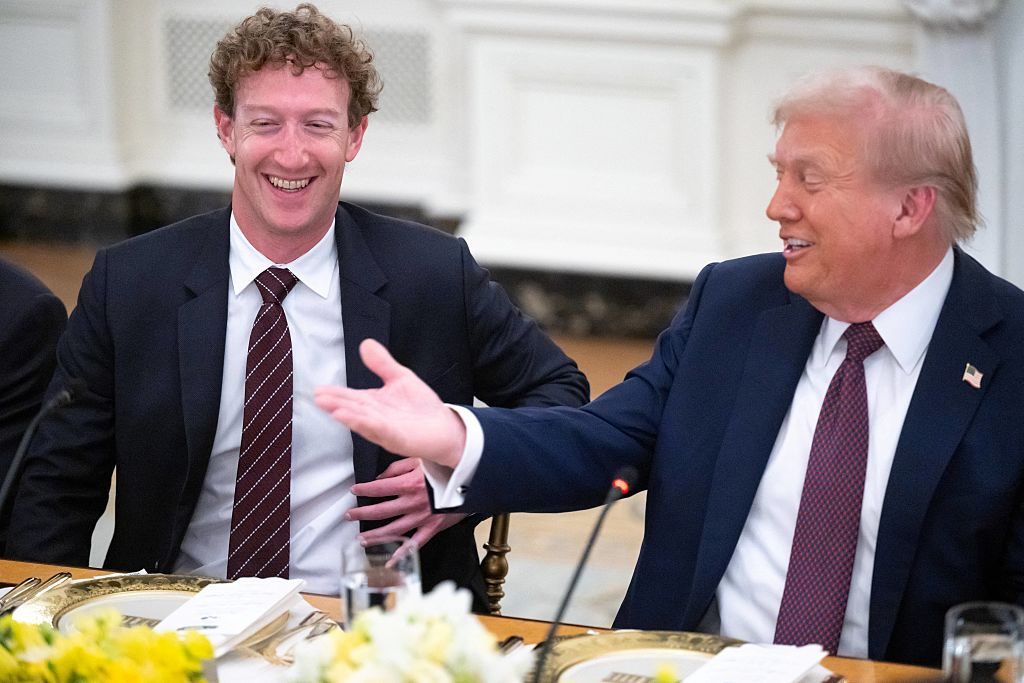An administrative asterisk might be even more important than the headline for Trump’s proclamation imposing a $100,000 fee on new applicants for the H-1B guest-worker visa. The proclamation opens with an extended denunciation of the “severe harms that the large-scale abuse of this program has inflicted on our economic and national security,” and reforming, if not curtailing, the H-1B program has been a long-held aim of American populists. This extraordinary fee at first seems, then, exactly what many populists wanted.
But one of the defining aspects of Trump II has been an alliance with tech conglomerates, and this proclamation gives something to the titans of Silicon Valley, too. Yes, a $100,000 fee is generally levied, but one part of the text gives the administration the ability to waive that fee: that fee “shall not apply to any individual alien, all aliens working for a company, or all aliens working in an industry, if the Secretary of Homeland Security determines, in the Secretary’s discretion, that the hiring of such aliens to be employed as H-1B specialty occupation workers is in the national interest and does not pose a threat to the security or welfare of the United States”. This means that the DHS head (currently Kristi Noem) has more or less absolute discretion to decide that certain individuals, particular companies, or even whole industries shall be exempted from paying that fee.
By giving this exemptive power to Homeland Security, the president’s proclamation at once builds bridges with Silicon Valley and extends his administration’s leverage over it. Tech companies and sectors that have strong relationships with the White House could theoretically be exempted from this fee and enjoy a steady stream of H-1B workers. At the same time, disfavored companies could find that labor pipeline effectively shut off.
This new H-1B decision exemplifies an evolution toward a noblesse oblige populism, in which the executive becomes the ultimate populist decider — to exempt certain economic actors, to burden others, and to insert itself in boardrooms across the country. Rather than breaking down “big business,” the White House has instead used a series of carrots and sticks to encourage American conglomerates to partner with it.
For instance, the president has announced plans for tariffs of around 100% on imported computer chips, but he also says that companies that choose to invest in the United States will be exempt from those levies. One of the most adept players of the noblesse oblige game, Apple CEO Tim Cook has courted the president, pledged to invest billions in American manufacturing, and reportedly won an exemption from those impending tariffs. In approving the acquisition of US Steel by Nippon Steel, the White House has also secured a “golden share” giving it the ability to veto certain corporate decisions (a power it is already using).
In the age of noblesse oblige populism, expect more CEO photo-ops in the Oval Office with gold-and-glass commemorative plaques and massive donations to the new White House ballroom. With the White House flexing its muscles of discretionary executive power, businesses will place an even greater priority on having face time with key members of the administration. This kind of politics likely favors captains of industry over corporate upstarts. It’s easier for Mark Zuckerberg or Jensen Huang to win an audience with the president than for some new startup to do the same.
But perhaps noblesse oblige populism’s most striking act of policy judo involves something else. President Trump rose to power as a critic of globalization, but now he is using the dependence of many American corporations on a global market as a vehicle for magnifying the power of the presidency. The White House is sending a message that access to global commerce — for microchips or foreign capital or H-1B visas — increasingly depends on making a pilgrimage to the boardroom at 1600 Pennsylvania Ave.











Join the discussion
Join like minded readers that support our journalism by becoming a paid subscriber
To join the discussion in the comments, become a paid subscriber.
Join like minded readers that support our journalism, read unlimited articles and enjoy other subscriber-only benefits.
Subscribe